第3章 INTRODUCTION(2)
Whereas the ordinary lumber-room of clubs from New Zealand, Hindu idols, sharks' teeth, mangy monkeys, scorpions, and conch shells--who shall describe the weary inutility of it? It is really worse than nothing, because it leads the unwary to look for objects of science elsewhere than under their noses. What they want to know is that their 'America is here,' as Wilhelm Meister has it."During this period, also, he began his lectures to workingmen, calling them Peoples' Lectures. "POPULAR lectures," he said, "Ihold to be an abomination unto the Lord." Working-men attended these lectures in great numbers, and to them Huxley seemed to be always able to speak at his best. His purpose in giving these lectures should be expressed in his own words: "I want the working class to understand that Science and her ways are great facts for them--that physical virtue is the base of all other, and that they are to be clean and temperate and all the rest--not because fellows in black and white ties tell them so, but because there are plain and patent laws which they must obey 'under penalties.'"Toward the close of 1859, Darwin's "Origin of Species" was published. It raised a great outcry in England; and Huxley immediately came forward as chief defender of the faith therein set forth. He took part in debates on this subject, the most famous of which was the one between himself and Bishop Wilberforce at Oxford.
The Bishop concluded his speech by turning to Huxley and asking, "Was it through his grandfather or grandmother that he claimed descent from a monkey?" Huxley, as is reported by an eye-witness, "slowly and deliberately arose. A slight tall figure, stern and pale, very quiet and grave, he stood before us and spoke those tremendous words. . . . He was not ashamed to have a monkey for an ancestor; but he would be ashamed to be connected with a man who used great gifts to obscure the truth." Another story indicates the temper of that time. Carlyle, whose writing had strongly influenced Huxley, and whom Huxley had come to know, could not forgive him for his attitude toward evolution. One day, years after the publication of Man's Place in Nature, Huxley, seeing Carlyle on the other side of the street, a broken, pathetic figure, walked over and spoke to him. The old man merely remarked, "You're Huxley, aren't you? the man that says we are all descended from monkeys," and passed on. Huxley, however, saw nothing degrading to man's dignity in the theory of evolution. In a wonderfully fine sentence he gives his own estimate of the theory as it affects man's future on earth. "Thoughtful men once escaped from the blinding influences of traditional prejudices, will find in the lowly stock whence man has sprung the best evidence of the splendour of his capacities; and will discover, in his long progress through the past, a reasonable ground of faith in his attainment of a nobler future." As a result of all these controversies on The Origin of Species and of investigations to uphold Darwin's theory, Huxley wrote his first book, already mentioned, Man's Place in Nature.
To read a list of the various kinds of work which Huxley was doing from 1870 to 1875 is to be convinced of his abundant energy and many interests. At about this time Huxley executed the plan which he had had in mind for a long time, the establishment of laboratories for the use of students. His object was to furnish a more exact preliminary training. He complains that the student who enters the medical school is "so habituated to learn only from books, or oral teaching, that the attempt to learn from things and to get his knowledge at first hand is something new and strange."To make this method of teaching successful in the schools, Huxley gave practical instruction in laboratory work to school-masters.
"If I am to be remembered at all," Huxley once wrote, "I would rather it should be as a man who did his best to help the people than by any other title." Certainly as much of his time as could be spared from his regular work was given to help others. His lectures to workingmen and school-masters have already been mentioned. In addition, he lectured to women on physiology and to children on elementary science. In order to be of greater service to the children, Huxley, in spite of delicate health, became a member of the London School Board. His immediate object was "to temper book-learning with something of the direct knowledge of Nature." His other purposes were to secure a better physical training for children and to give them a clearer understanding of social and moral law. He did not believe, on the one hand, in overcrowding the curriculum, but, on the other hand, he "felt that all education should be thrown open to all that each man might know to what state in life he was called." Another statement of his purpose and beliefs is given by Professor Gladstone, who says of his work on the board: "He resented the idea that schools were to train either congregations for churches or hands for factories. He was on the Board as a friend of children. What he sought to do for the child was for the child's sake, that it might live a fuller, truer, worthier life."The immense amount of work which Huxley did in these years told very seriously on his naturally weak constitution. It became necessary for him finally for two successive years to stop work altogether. In 1872 he went to the Mediterranean and to Egypt.